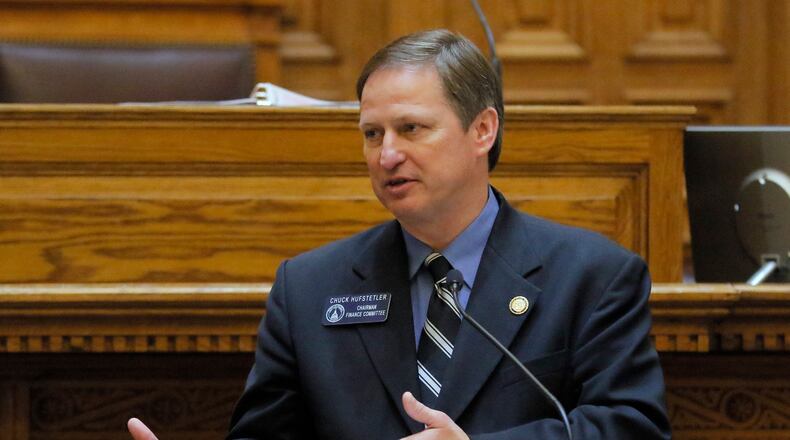The chairman of the Georgia Senate’s tax-writing committee said Friday he doesn’t think the General Assembly can pass another income tax rate cut during the 2020 session.
At least with the current budget situation.
“Right now, the revenue is not there for that,” said Senate Finance Chairman Chuck Hufstetler, R-Rome. “I don’t see the math there right now.”
Hufstetler made the remarks during a forum Friday put on by the Georgia Budget & Policy Institute. The organization put out a report last year saying another income tax cut would mean little to most Georgians but potentially save top wage earners thousands of dollars a year.
Lawmakers voted in 2018 to reduce the top state income tax rate from 6% to 5.75% in response to federal tax changes that, officials thought, would force many Georgians to pay higher state taxes.
The 2018 legislation set up a second vote, in 2020, to lower the rate again to 5.5%.
However, economists said the state didn’t get the full expected windfall from the federal tax changes, and revenue collections have been slow over the past year.
Gov. Brian Kemp ordered state agencies to cut 4 percent from their budgets this year and 6% next year. While many areas were exempt, the cuts are expected to save the state more than $200 million this fiscal year and $300 million in fiscal 2021, which begins July 1.
Kemp's proposed budget does not account for a possible tax cut this year, so lawmakers would likely either have to cut another $500 million or so in spending or pass tax cut legislation that delays the reduction until sometime in the future.
Hufstetler and his colleagues have been working on measures to increase tax collections and he voiced support for increasing the state’s tobacco taxes.
Two Democrats on the panel Friday, House Minority Caucus Chairman James Beverly, D-Macon, and Rep. David Dreyer, D-Atlanta, also voiced opposition to another income tax cut.
“In a word, no,” Beverly responded when asked whether the General Assembly should consider it.
Both cited a host of spending cuts, including those to mental health and substance abuse programs, as examples of the kind of things lawmakers are already facing.
“Until we meet our basic obligations .... it absolutely does not seem like the right time to have an income tax cut,” Dreyer said.
About the Author
Keep Reading
The Latest
Featured



